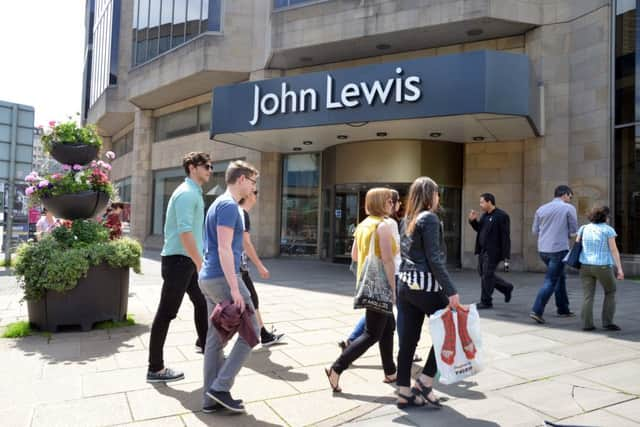Bad days at the office take their toll


The Scottish Fair Work Convention set up last year is to be welcomed. Its remit is to improve the quality of jobs in Scotland. A double win is being sought here, as better working conditions equal better productivity.
Fair work has another benefit that needs to be brought to the fore: fair work is also healthier work.
Advertisement
Hide AdAdvertisement
Hide AdWe often think of health as being the outcome of lifestyle choices such as diet, exercise and levels of smoking and alcohol-intake. In many respects nothing to disagree with there. These accepted understandings of health are, however, not the whole story.
As leading epidemiologist Michael Marmot suggests, the traditional risk factors just mentioned count for between a quarter and a third of our overall health.
The rest is influenced by what he calls the social determinants of health. Put simply: how our society is structured and where we are located in that structure shapes our health and wellbeing. Health and wellbeing are, therefore, intimately bound with all aspects of our lives, work included. So, when thinking about health what we should be focusing on is not individual behaviours, what people do, but rather the context and the wider social relations that surround us.
Too much of the contemporary workplace is arguably not what former Chief Medical Officer of Scotland Harry Burns referred to as “salutogenic” (health creating).
When it comes to work the evidence points to how issues such as control, adequate reward, social support and less differences between management and other workers are key in making work healthy.
Thinking about health and wellbeing in this way points to a different approach to health in the workplace.
It is not so much about having a fruit bowl on the desk and time to exercise (though no harm done if those resources are available) but how work is designed that is critical.
So, one health policy in keeping with this salutogenic approach could be to create more meaningful control in the workplace at both at strategic or operational levels.
Advertisement
Hide AdAdvertisement
Hide AdThis could take various forms. The John Lewis Partnership model is the obvious example, where workers have the opportunity to influence the company at local and national level, but other options include greater employee or trade union representation on management boards.
Or one could go further and introduce workers’ co-operatives as practised by the globally successful Mondragon Corporation in the Basque region.
There the workers select the managers, and the pay differential between the lowest paid employee and a manager is a ratio of 5:1, as opposed to differentials that we see in the UK of 130:1, according to the High Pay Centre. Whatever route is followed, more control equals better health.
From my own research, I have found that for many people their overall health and wellbeing is also compromised by the meaninglessness of work.
Work feels like a series of alienating and pointless tasks that play no part in creating a positive identity or adding to the narrative of their lives.
American sociologist Richard Sennett compares the modern workplace to a railway station. You turn up, watch the clock and wait till you can get home again. Reasons for the erosion of meaning can be found in many of the familiar experiences of the contemporary workplace: lack of autonomy, micro-management, the rounds of performance review, the constant shifting sands of targets, corporate-speak or the precariousness of temporary, part-time work.
For that last group of workers, the Precariat, finding meaning in work is especially challenging as they move from one short-term job to another.
There is a lot to gain from fair work. Productivity and efficiency are the gains that are often highlighted.
Advertisement
Hide AdAdvertisement
Hide AdOn a more fundamental level, improved health and wellbeing are another gain. It is now time to rethink both what work is and the role that it plays in a healthy society.
• Chris Yuill is a sociology lecturer at Robert Gordon University’s School of Applied Social Studies in Aberdeen www.rgu.ac.uk